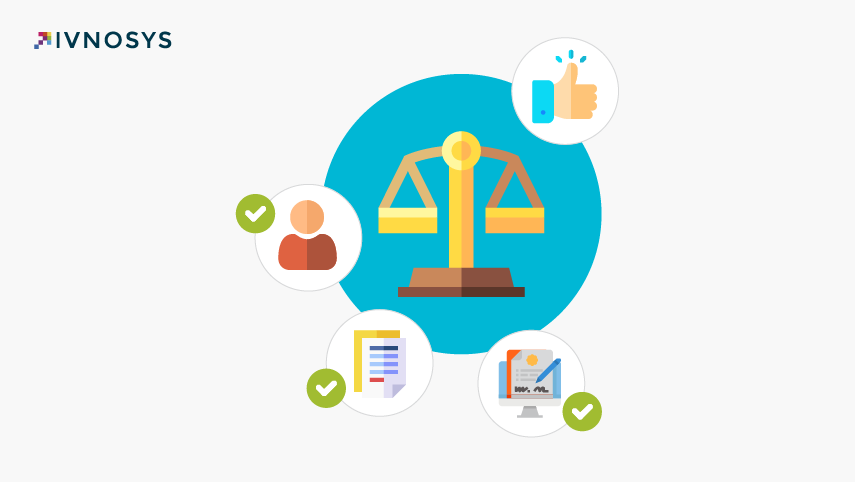
Do you have proofs? The probative value of digital evidence
Escrito por: ivnosys Fecha Thursday 29, July 2021 Categoría: Digital Certificate, Digitization, E-Signature
As we are used to hearing, “talk is cheap…” but digital evidence is not. And so it is, in fact, in the professional field it usually happens when we reach a verbal agreement at a business lunch or even sign an online contract without using the appropriate platforms that protect our digital identity and ensure a safe documentary custody. For this, as a result of the advancement of technology in recent years, there are digital evidences and it is vital for a company today to know them.
Electronic signature as digital evidence
 With the advance of technology, more and more evidence is generated electronically: electronic documents, e-mails, conversations in instant messaging applications… However, the probative value of this evidence is closely linked to the technological solution used at the time of its generation.
With the advance of technology, more and more evidence is generated electronically: electronic documents, e-mails, conversations in instant messaging applications… However, the probative value of this evidence is closely linked to the technological solution used at the time of its generation.
In situations where signed electronic documents such as contracts, agreements, authorizations, etc. are provided, their value can easily be questionable. There are several elements that will be decisive when presenting evidence in a judicial process and that only electronic evidence can provide:
- Guarantee the identity of the signatory (user).
- The day, date and time of the signatura
- Trace of communications and sending code: to whom the document is sent, time of delivery, opening and signature.
- Origin of these documents in a legal proceeding.
Therefore, the probative value will vary depending on the reputation of the issuing entity, as well as the ability to guarantee authenticity, integrity and confidentiality.
Evidentiary quality according to the eIDAS regulation
The eIDAS regulation (EU) 910/2014, in charge of regulating electronic transactions and communications, establishes 3 types of electronic signature accepted by all European Union countries: simple signature, advanced signature and qualified signature. As we commented in this post, there are differences between these types of signature and their use will depend on the judicial situation before which we find ourselves.
However, within companies, there may be many employees who have access to electronic signatures and the digital certificate of the same, forcing organizations to establish crime prevention programs and custody of electronic documentation to avoid incurring in infractions caused by the legal entity not having exercised due control over its employees.
Electronic evidence collection tools
Nowadays there are countless tools that allow to control the use that authorized employees give to the signatures and digital certificates of a company.
In the case of electronic signatures, we find the IvCert platform, which allows signing documents with all types of electronic signatures in compliance with eIDAS regulations, with the aim of guaranteeing security by collecting electronic evidence that provides legal robustness.
As for digital certificates, we find the IvSign platform, responsible for issuing and centralizing existing digital certificates in an organization so that employees can use them securely. In this case, there is the possibility of sharing their use among workers, establishing permissions and rules of use and controlling in real time who, when and for what purpose a digital certificate has been used.
These auditing processes are in charge of collecting the electronic evidences related to the administrative operations performed by each user within the platform, as well as the signature or authentication operations performed with digital certificates. The electronic evidences recorded by the platform will be in charge of providing the probative value in a judicial process.
The support of a Qualified Trusted Service Provider
In order to ensure that the document signed with both electronic signature and digital certificate meets all the properties of authenticity and integrity of the document and, therefore, serve as evidentiary value in case of trial, the Qualified Trusted Service Provider, as is the case of Ivnosys, complies with the maximum legal guarantees acting as such and as a Trusted Third Party through its signature and digital identity solutions.




